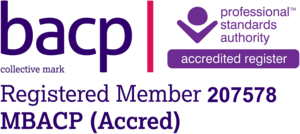Mental health v's Physical health:
Just like physical health, we all have mental health. Our mental health includes how we think, feel and behave, how we cope with life and how we feel about ourselves. There is a distinction between 'mind' and 'body', but when considering mental health and physical health, the two are closely connected. Poor physical health can lead to an increased risk of developing mental health problems, and poor mental health can negatively impact on physical health, leading to an increased risk of some conditions. (Mental Health Foundation)
No-one is immune to mental health struggles - millions of people are affected every day. There are a broad range of emotional and psychological concerns; the most common are anxiety and depression . Symptoms differ from person to person and vary in severity.
No-one is immune to mental health struggles - millions of people are affected every day. There are a broad range of emotional and psychological concerns; the most common are anxiety and depression . Symptoms differ from person to person and vary in severity.
''Our mental health is equally as important as physical health, and should be taken as seriously. The only difference is how we think about and approach it'' Karen Corbett - Life Matters, Manchester
Anxiety
Anxiety is a normal part of the human condition - a natural response when we perceive that we are under threat. Anxiety occurs when a person is worried, tense or afraid – particularly about things that could happen, or things that are about to happen. Some people might have been impacted by things that have happened in the past, and fear them happening again. We are supposed to feel some anxiety about things we face in life - a job interview, a public speech, exam, or a new challenge for example.
Anxiety feels different for everyone - it impacts how we think (thoughts), feel (body sensations) and how we behave as a result; therefore Anxiety only becomes a problem when it starts getting in the way of life. Some common symptoms of anxiety include:
Anxiety feels different for everyone - it impacts how we think (thoughts), feel (body sensations) and how we behave as a result; therefore Anxiety only becomes a problem when it starts getting in the way of life. Some common symptoms of anxiety include:
Physical: churning stomach, heavy/fast heartbeat, breathing fast, dizzy/light headed, nausea (feeling sick), sweating/hot flushes, sleeping problems, headaches and other muscle aches, needing the toilet more or less often, feeling restless/agitated, pins and needles, teeth grinding,
Mental: feeling tense/nervous, worrying, sense of dread/ fearing the worst, rumination (thinking over and over about something that happened), feeling disconnected, seeking reassurance from others, feeling self-conscious around others.
Depression
Depression ranges from low, moderate, to severe. In its mildest form, Depression can mean just being in low spirits, leading your normal life, but everything is harder to do and seems less worthwhile. At worst, Depression can be life-threatening if it leads to feeling suicidal. Emotional and physical well-being can be impaired, as well as changes to a person's behaviour. Depression impacts each person differently, but common symptoms include:
feeling down, sad or tearful, restless, agitated or irritable, empty or numb, struggling with confidence/self-esteem, feelings of guilt or worthlessness, feeling hopeless, eating/sleeping more or less than usual, fatigue, loss of interest/excitement in things previously enjoyed, or isolating/feeling disconnected from others.
Facts and figures
According to the Mental Health Foundation, mental health problems are one of the main causes of the overall disease burden worldwide. It is estimated that 1 in 6 people in the past week experienced a common mental health problem. Mental health related conditions such as Anxiety, Depression and Stress are the leading cause of sickness and absence from work. The most common experience in Britain is mixed Anxiety and Depression (7.8%), which has been estimated to cause one fifth of days lost from work.
Talk about it
One of the most effective ways to deal with mental health problems, is talking about it with a professional. This provides an opportunity to explore and be open about your thoughts and feelings without pre-conceived ideas, shame, judgement or discrimination. Having this unique space can assist you to explore any issues you are facing, understand what may have caused the problem, and find strategies to manage symptoms and move forward with your life. A 2016 Time to Change survey of over 7,000 people living with mental health issues found that 60% felt relieved and "like a weight had been lifted" once they talked about their condition. Life Matters Therapy offers counselling in Manchester and online counselling, coaching in Manchester and online, and Hypnotherapy in Manchester or online.
Key words: Counselling Manchester - Hypnotherapy Manchester - Counselling Central Manchester



